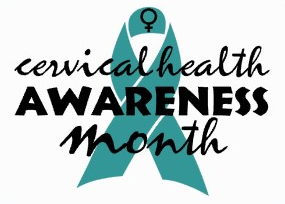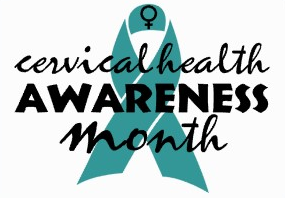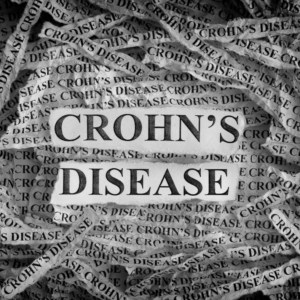Last Updated on October 21, 2024
January is National Cervical Health Awareness Month. With all women being at risk for cervical cancer, it’s important to be mindful of the health risks, symptoms, and resources available to those in need. The Center for Disease Control (CDC) estimates 12,000 women are diagnosed with cervical cancer each year, and about 4000 women die from it annually.

The main cause of cervical cancer is human papillomavirus (HPV), a common virus that can be passed between people during sex. HPV is so common that most people will have it at some point during their lives without ever developing symptoms. About 90% of cases are cleared naturally by the immune system within two years; however, there is no way of knowing which individuals will go on to develop health problems. Some strains of HPV can cause warts around genitals or in one’s throat, while others can cause normal cells in the body to turn abnormal—possibly leading to cancer over time. Other factors that can increase your risk for cervical cancer are smoking, having HIV, using birth control pills for an extended time (five or more years), or giving birth to three or more children.
The most important thing one can do to prevent cervical cancer is to have regular screening tests starting at age 21. Regular Pap tests performed by a doctor are the main defense against cervical cancer. There are vaccines for HPV that can greatly decrease the chances of contracting the potentially malignant virus available to pre-teens and young adults. Safe sex practices can also lower the risk of infection for both cervical cancer and HPV.
In a previous blog post, we featured the National Breast Cancer and Cervical Cancer Early Detection Program, a national government initiative that provides free or low-cost screenings for those who qualify and gives access to treatment through Medicaid for women diagnosed with cancer through the program. We have information on more regional and local resources in our Diagnosis-Based Assistance database. One such resource is the Color of Teal, a non-profit organization that offers a program providing financial assistance to women in need in the Northeast United States in order to help cover the costs of cancer screenings, gynecology follow-ups, radiology services, chemotherapy, medication, and transportation expenses.
Cervical Health Awareness is a nationally important matter. Women should be encouraged to get their well-woman visit with their doctor this year and be told of the resources available if they need help. Parents should know the HPV vaccine can also greatly decrease their children’s risk of contracting cervical cancer.
For more information and a live Q&A session on cervical cancer and HPV, NeedyMeds and Color of Teal presented a special webinar Thursday, January 22, 2015: “HPV & Cervical Cancer: Where One Is More Than Enough.” Watch the webinar here.





